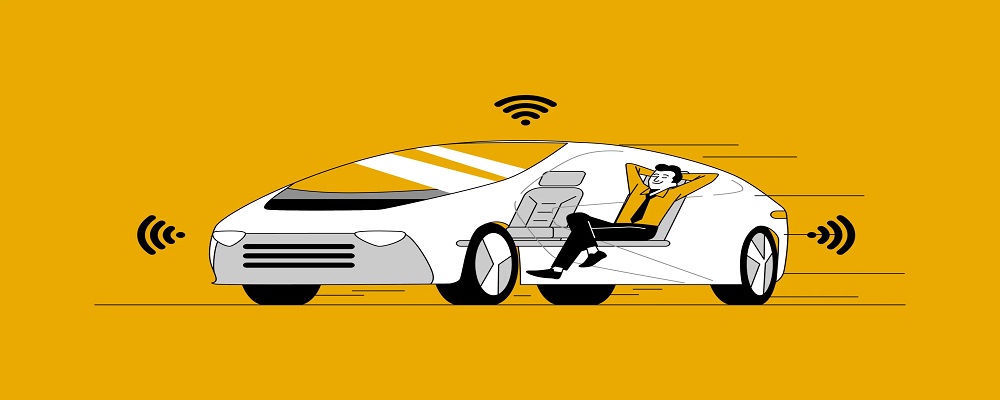The Rise of Autonomous Vehicles in the U.S.
In recent years, the United States has witnessed a significant rise in the adoption of autonomous vehicles powered by artificial intelligence (AI). These advanced vehicles, also known as self-driving cars, are revolutionizing the transportation industry and paving the way for a future where human drivers may no longer be necessary. The integration of AI technology in autonomous vehicles has opened up new possibilities for safer, more efficient, and environmentally friendly transportation solutions.
AI-Powered Technology Driving Autonomous Vehicles
Autonomous vehicles rely on a complex network of sensors, cameras, radar, and LiDAR technology to perceive their surroundings and make informed decisions in real-time. AI serves as the brain of these vehicles, enabling them to interpret data, navigate through traffic, and respond to changing road conditions autonomously. Machine learning algorithms play a crucial role in enhancing the capabilities of autonomous vehicles by continuously analyzing vast amounts of data to improve their decision-making processes.
Industry Leaders in Autonomous Vehicles
Several technology companies and automotive manufacturers in the U.S. have been at the forefront of developing and testing autonomous vehicles. Companies like Waymo, a subsidiary of Alphabet Inc., have made significant strides in the field of self-driving technology. Waymo’s autonomous vehicles have logged millions of miles on public roads, showcasing the potential of AI-powered transportation.
Tesla, led by CEO Elon Musk, is another major player in the autonomous vehicle market. Tesla’s Autopilot feature, which leverages AI algorithms to enable semi-autonomous driving capabilities, has garnered widespread attention and sparked debates about the future of self-driving cars.
Other industry leaders, including General Motors with its Cruise Automation division and Ford with its investment in Argo AI, are also investing heavily in autonomous vehicle technology. These companies are working towards commercializing self-driving cars and reshaping the way people commute and travel.
Regulatory Challenges and Public Perception
Despite the rapid advancements in autonomous vehicle technology, regulatory challenges and public perception remain key obstacles to widespread adoption. Safety concerns, ethical dilemmas, and liability issues surrounding autonomous vehicles have raised questions about their deployment on public roads.
Regulatory bodies at the federal and state levels are grappling with how to effectively oversee the testing and deployment of autonomous vehicles while ensuring public safety. Establishing standardized guidelines and regulations for self-driving cars is essential to build trust among consumers and accelerate their acceptance in the mainstream market.
Moreover, public perception plays a crucial role in shaping the future of autonomous vehicles. While some individuals embrace the potential benefits of self-driving cars, such as reduced traffic congestion and lower accident rates, others express skepticism and fear about the implications of relinquishing control to AI-powered systems.
Impact on Transportation and Urban Development
The integration of autonomous vehicles into the transportation ecosystem has the potential to transform urban landscapes and redefine the way people move within cities. Self-driving cars could lead to more efficient use of road infrastructure, reduced emissions, and improved accessibility for individuals with limited mobility.
Furthermore, the rise of autonomous ride-sharing services could revolutionize the concept of car ownership and encourage a shift towards shared mobility solutions. By offering convenient and cost-effective transportation options, autonomous vehicles powered by AI have the potential to enhance urban sustainability and reduce reliance on traditional gasoline-powered vehicles.
Future Outlook and Continued Innovation
As the adoption of autonomous vehicles powered by AI continues to gain momentum in the U.S., the future of transportation looks increasingly automated and interconnected. Innovations in AI technology, coupled with ongoing research and development efforts, are propelling the evolution of self-driving cars towards greater safety, efficiency, and reliability.
Looking ahead, industry stakeholders, policymakers, and the public must collaborate to address the challenges associated with the widespread deployment of autonomous vehicles. By fostering a supportive regulatory environment, promoting public awareness and acceptance, and investing in research and development, the U.S. can unlock the full potential of AI-powered autonomous vehicles and shape a more sustainable and efficient transportation landscape for future generations.

